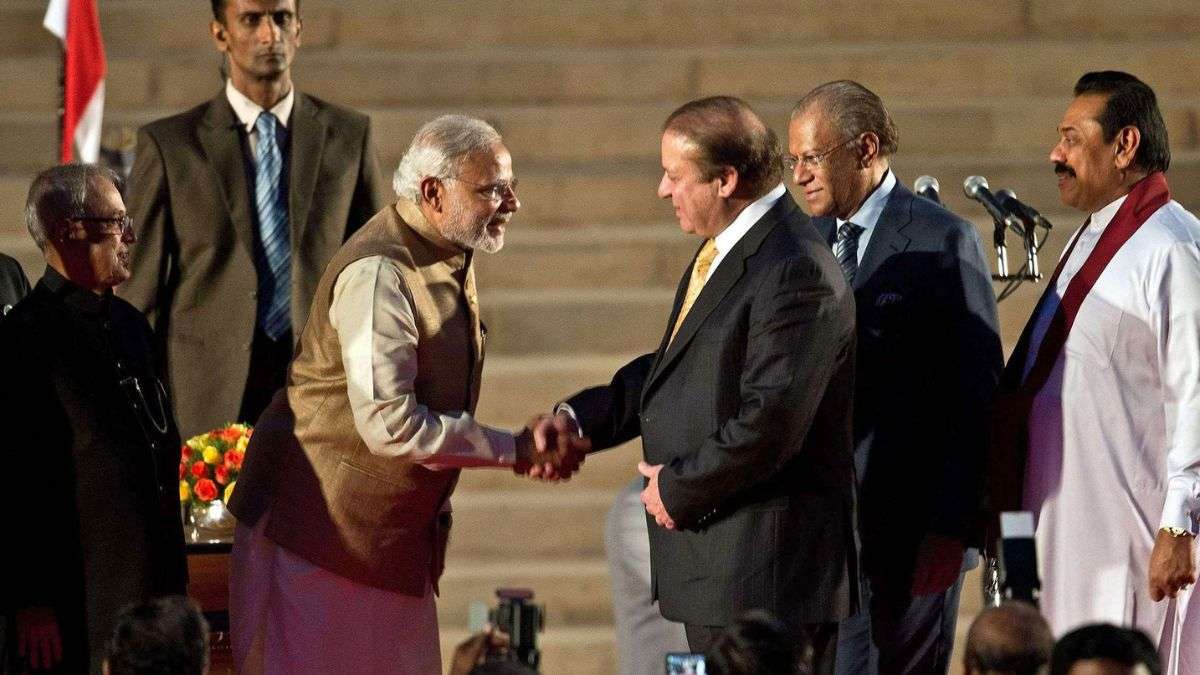
In 2014, when the Bhartiya Janata Party candidate Narendra Modi was sworn in as the Prime Minister of India, the grand event was witnessed by the leaders of neighbouring nations, including the then-Pakistan PM Nawaz Sharif. However, this time, the environment is totally different. The moment PM-designate Modi was declared as the leader of the National Democratic Alliance (NDA), India accorded the highest priority to its ‘Neighbourhood First’ policy and ‘SAGAR’ vision”. The Ministry of External Affairs sent invitations to various SouthEast nations including Maldives, Bangladesh, Sri Lanka, Bhutan and Nepal but it did not pass the same call to its immediate neighbour, Pakistan, for the event. Notably, in the recently concluded Lok Sabha polls, the BJP party-led alliance secured 293 seats out of 543. The majority mark in the lower house is 272.
Why did India refrain from inviting Pakistan?
It is worth mentioning the relations between India and Pakistan have always been rocky, except for a few instances when the leaders of both nations sat together to ease tensions. This time too, when New Delhi invited the heads of the South Asian nations, the invitation to current Pakistan PM Shehbaz Sharif became a talking point in diplomatic circles. The exclusion of Shehbaz Sharif, the younger sibling of Nawaz, from the invitation list reflects the ongoing diplomatic chill between the two nations. While the prospect of extending an invitation seemed remote, if not impossible, it was definitively dismissed given the current frosty state of relations.
Contrastingly, the transition from 2014 to 2024 marks a notable shift. A decade later, bilateral relations are far from being in a ‘working mode’ as they were back in 2014. However, they also haven’t deteriorated to the extent witnessed in May 2019, when a series of events earlier that year led to the exclusion of Pakistan from the invitation list following Prime Minister Modi’s reelection for a second term. The revocation of Article 370 of the Constitution in August 2019 altered the special status of Jammu and Kashmir, leading to a souring of relations with Pakistan and a complete absence of bilateral political communication since then.
In 2015, when PM Modi took a surprise tour to Islamabad to meet his then-Pakistani counterpart, Nawaz, it was expected that the bilateral relations could improve. Months after his visit, the Indian Army faced a major militant attack on its camp at Uri. This triggered tensions, and the Indian forces carried out surgical strikes at multiple locations across the Line of Control.
Pulwama attack- A major turn of event
When Imran Khan took the chair in 2018, PM Modi called him, and a little hope arose. However, in 2019, at least 40 personnel were killed in Jammu and Kashmir, months before the general elections were scheduled. India categorically accused Islamabad of the deadly attack. Although Khan called PM Modi for his second term, the heavy dust remains. In August 2019, when India revoked Article 370 from Jammu and Kashmir, Pakistan turned to international forums to drag New Delhi’s decision. However, Islamabad’s move did not attract much attention. But both countries suspended bilateral trade.
As of now, the situation at the Attati-Wagah border, which was one of the major sources of trade routes, remains of no use. In 2022, when Shehbaz Sharif ousted Imran Khan from the Parliament, he did not contact his Indian counterpart—neither did PM Modi.
When he gained the second term in March this year, Modi congratulated Shehbaz Sharif on being sworn in as the Prime Minister of Pakistan. “Congratulations to Shehbaz Sharif on being sworn in as the Prime Minister of Pakistan,” he posted on social media platform. However, the same was not reverted when Modi gained the third consecutive term on June 4.
Earlier, when a reporter asked why Pakistan did not extend greetings to PM Modi, its Foreign Office spokesperson Mumtaz Zahra Baloch said, “Since the new government hasn’t officially been sworn in, it is premature to talk about congratulating the Indian Prime Minister.” She said Islamabad desired cordial and cooperative ties with all its neighbours, including India, and wants to resolve disputes through talks.
Who had attended PM Modi’s swearing-in ceremony in 2014, and 2019?
The leaders of the regional grouping SAARC (South Asian Association for Regional Cooperation) countries attended Modi’s first swearing ceremony when he took the reins as prime minister after a massive electoral victory for BJP.
Leaders of the BIMSTEC countries attended Modi’s swearing-in ceremony, in 2019 when he became prime minister for the second consecutive term. Though the BJP could not get a majority on its own in the recent Lok Sabha polls, the party-led alliance secured 293 seats out of 543. The majority mark in the lower house is 272.
Also Read: Why Pakistan has not congratulated PM Modi on historic third term? Islamabad gives evasive reply